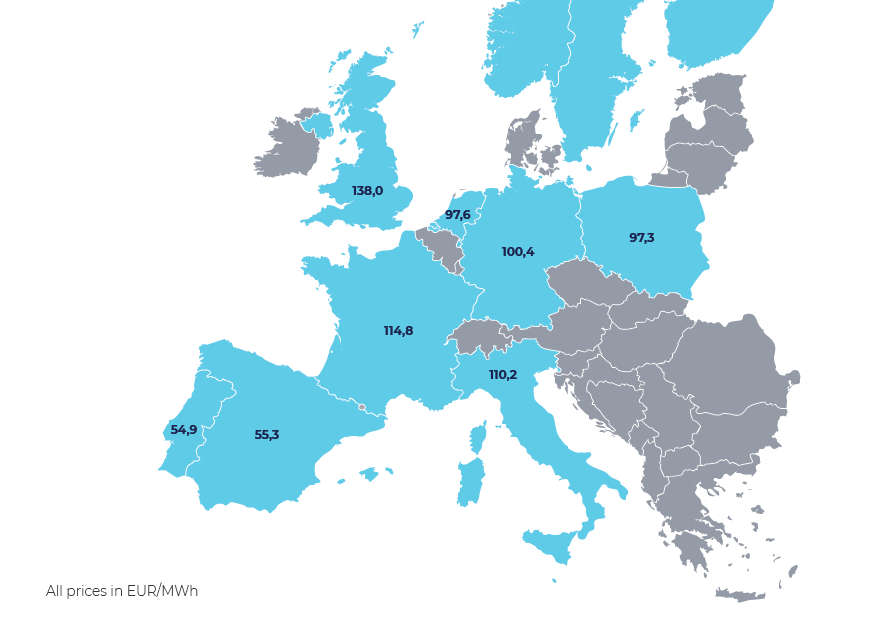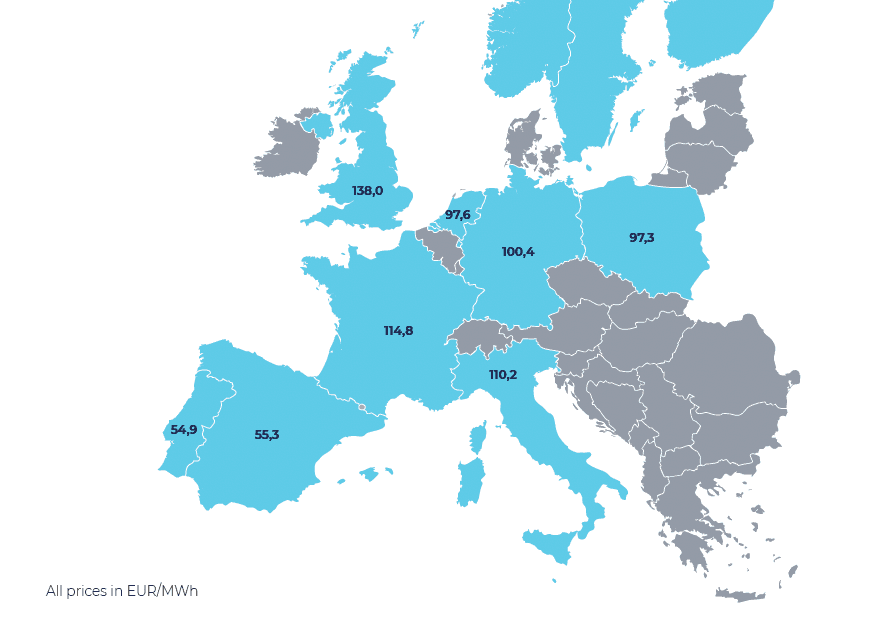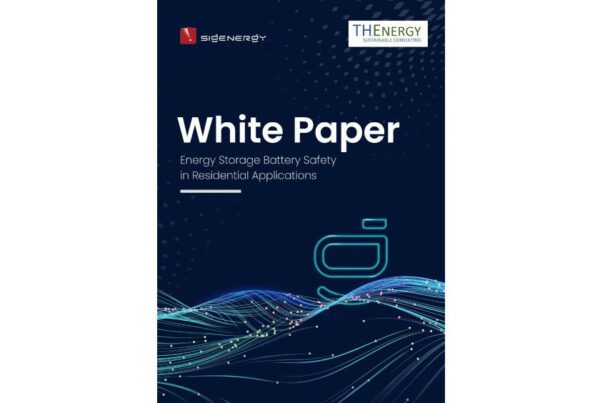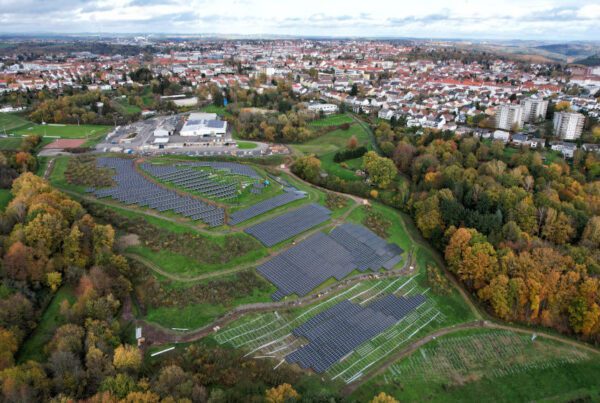
European prices for power purchase agreements rose in several countries in November, with the Polish index recording an increase of 19.4%. Portugal registered an increase of 15.5%, followed by Spain at 15.7%. Germany was the only country that recorded a monthly decline, with prices falling by 0.8%.
Switzerland’s Pexapark said in a recent report on European PPAs that renewables “are the absolute winners of 2022 and the years to come in an environment of crisis and difficulties.”
Developers announced 16 PPAs with a total capacity of 1,881 MW in November. That equates to 24% more capacity than in October, which makes November the month with the highest volume of signed deals in 2022, in terms of megawatts.
The capacity increase is partly due to two contracts signed by Microsoft in Ireland (900 MW), which represent almost half of the total monthly volume. There was also activity in Germany, as EnBW signed two new PPAs for a 900 MW offshore wind farm. The composite price index for renewable PPAs increased by 7.4% month on month.
The Polish index recorded the most notable increase, at 19.4%. Portugal registered an increase of 15.5%, followed by Spain at 15.7%, due to an increase in futures prices. Germany was the only country to register a decline, with prices sliding 0.8% month on month, due to falling domestic futures prices.
“However, regulatory uncertainty increases as EU member states begin to apply the much-discussed EU revenue cap at the national level,” said Pexapark.
Popular content
In November, the European Union approved new provisions to intervene in the electricity market and introduced a cap on renewables of €180/MWh. However, the proposed national revenue cap policies vary widely. The duration of many national policies is longer than that foreseen in the EU regulation, and would only apply until June 30, 2023.
Some member states have drafted complex regulations that do not calculate the actual net income, but instead focus on a generic reference market price. This approach can harm existing PPAs, as it exposes producers to the risk of being taxed on income they have not earned.
Depending on the final regulations, the short-term PPA market could be negatively affected, with declining liquidity in the futures market. Regulatory uncertainty could also complicate cross-border PPA pricing.
“Regulatory interventions make sense for consumers, but we have to keep in mind that interventions carry a higher perception of risk from an investor perspective, which translates into higher return expectations, higher costs, and, ultimately, a slower energy transition,” said Pexapark.
This content is protected by copyright and may not be reused. If you want to cooperate with us and would like to reuse some of our content, please contact: editors@pv-magazine.com.



